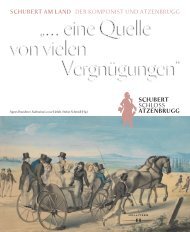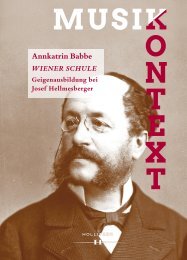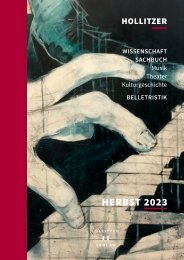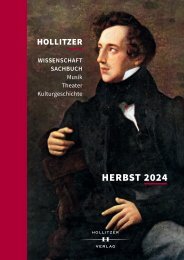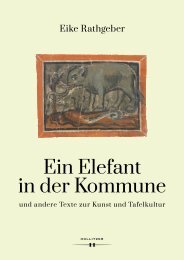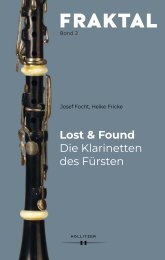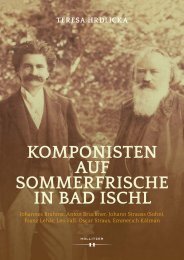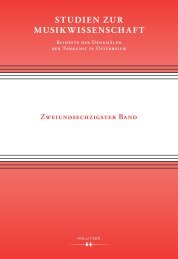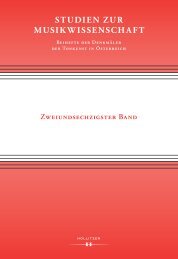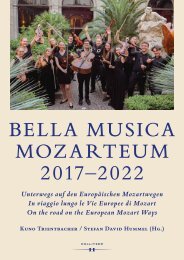You also want an ePaper? Increase the reach of your titles
YUMPU automatically turns print PDFs into web optimized ePapers that Google loves.
and these terms became central concepts in understanding the socio-historical<br />
developments in the Ottoman Empire/Turkish Republic as well as comprehending<br />
the education, oeuvres, 25 and the formative environments of the three composers<br />
in question. Moreover, in the music historiography it is possible to detect<br />
definitions that are derivatives of the aforementioned terms for tendencies [a<br />
word becomes a tendency through the suffixes -laşma (Turkish), -isation (English),<br />
or -isierung (German)]. Such definitions are set by the attitude of the definer towards<br />
these tendencies, and bear political and ideological functions: Modern müzik<br />
[modern music], Çağdaş müzik or Asri müzik [contemporary music], Batı müziği<br />
[Western music], Avrupa müziği [European music], Fenni müzik [scientific/technical<br />
music], Garp müziği [Occidental music], Alafranga müzik [European-style music],<br />
Beynelminel musiki [international music], etc.<br />
The principal difficulty here is beyond what Bülent Aksoy determines 26 as a<br />
problem for the origins of Ottoman music and music of Turkey, also extending<br />
to the definitions and concepts of music. As thematised in various sections of this<br />
research, one may conclude that in Ottoman/Turkish music historiography the<br />
issues are discussed or addressed on the basis of politics and ideologies, rather than<br />
from an objective, scientific distance.<br />
1.2. Genre<br />
In considering the compositions and musical personalities of the composers in this<br />
research, it is possible to claim that these composers are associated with a number<br />
of genres categorised in music historiography under Ottoman music/music of<br />
Turkey (Osmanlı/Türkiye Çoksesli Müziği [Ottoman/Turkish polyphonic music],<br />
Türkiye Çağdaş Müziği [Turkey’s contemporary music], Türkiye Evrensel Müziği<br />
[Turkey’s universal music], Türk Klasik Müziği [Turkish classical music], etc.).<br />
The relationship between these three composers and ‘Western music’ plays<br />
a crucial role in the background of this association. This process of establishing<br />
bonds with Western music is first due to their internalisation, which began with<br />
their pre-existing interests and tendencies, combined with their education/training,<br />
and resulted in the conversion of their knowledge and intellectual accumulation,<br />
which is production.<br />
‘Western Music’, which is a model with an ascendant part in this process, is<br />
considered from different perspectives in music literature and music historiography,<br />
is accordingly interpreted, and poses new definitions.<br />
25 ‘Oeuvres’ encompasses not just the compositional output of the composers, but also their other<br />
works, e.g. memoirs, stories, and writings about music.<br />
26 Bülent Aksoy, Geçmişin Musiki Mirasına Bakışlar [Glimpses of the Music Legacy of the Past]<br />
(İstanbul: Pan, 2008), 140.<br />
34





